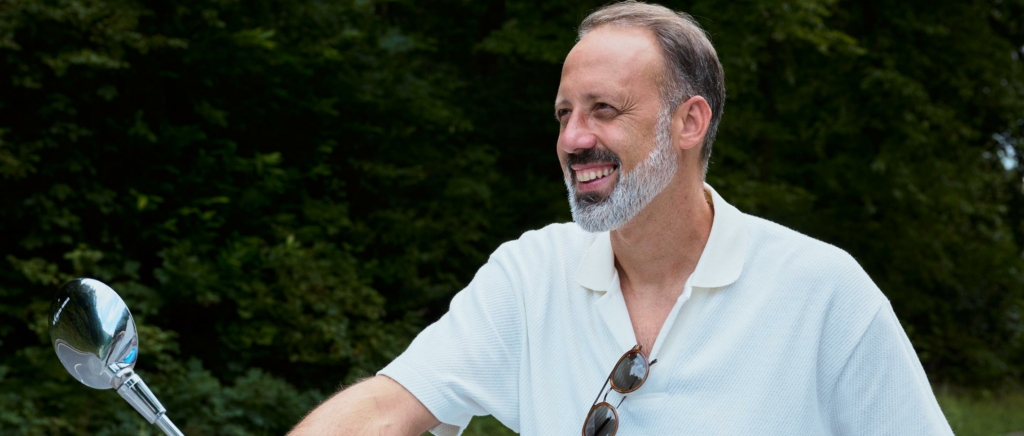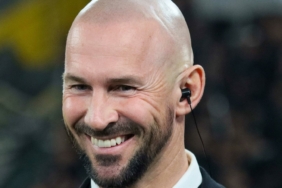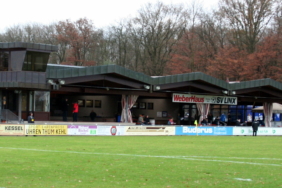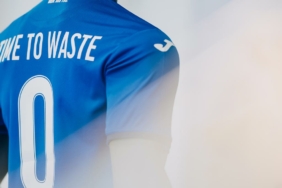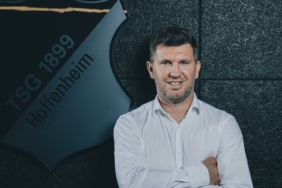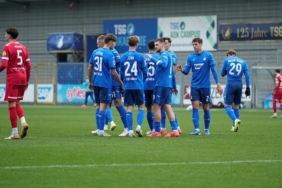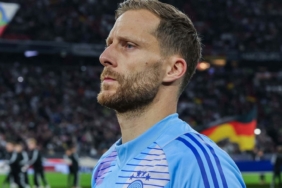Last season, you were a crisis manager, as you took over the team in the middle of the fight against relegation. Is the 2023/24 season also a new start for you?
“We aren’t starting from square one. There are a lot of things that we have already worked on with the team. Of course, we learned our lessons from pre-season and worked intensively and at a good level during our pre-season preparations.”
After the difficult months during the sprint to the finish line at the end of last season, were you able take a step back from it all and switch off during the summer break?
“Personally, I was also able to handle the pressure well during the season. During the break, I was not only looking back – I was mostly thinking ahead. I was much more concerned with the pre-season preparations. Nevertheless, there were moments when I was able to switch off. Otherwise, you won’t have the energy to make it through a season. During the season, your mobile phone is on all day – even in the evening – so that you are contactable. During the summer break, when there was nothing important on the agenda, I switched it off regularly during the day to really have time for my family and for myself.”
What can you take with you from last season? What are you looking to add?
“The second half of the season was a very good example of how to be successful in the Bundesliga – regardless of the quality on the pitch. It was the other virtues that brought us success. It is an advantage that we have been through that difficult situation and now have the ability to tap into those elements. What we want to achieve is consistency, and to be close to the maximum in every situation.”
Does the upheaval in the squad also offer a chance, even though some strong players have left TSG?
“Every change creates an opportunity. It is important that we make the right decisions during this period of upheaval. It is an exciting time – for the squad and for me as head coach – to be able to develop something at TSG together with the people responsible for the management of the club. This is a great opportunity for all of us.”
Do you want to change the team’s philosophy or playing style?
“Of course, we want to consolidate our philosophy and go into greater detail, but we want to continue to shift the game into the opposing half, towards their goal. If we can do that through constructive build-up play, that’s good. If the short-passing approach doesn’t work, then playing long balls and winning the second balls is also an option. We do not need to waste energy in our own half if we do not benefit from it. We worked intensively on this in pre-season. But at the end of the day, it’s always about winning games.”
“The eleven players on the pitch should be able to manage themselves in the games.”
How do you choose your starting eleven? And how does your decision-making process work? Which of the nearly 30 players in the squad will ultimately become regular players?
“It’s an organic process: for me, the first eleven for the start of the season crystallises in the course of pre-season. First, I look at individual profiles – where everybody is at the moment and where the strengths of the team as a whole lie. And it’s about developing a sense of who can work well with whom.”
What does the ideal Matarazzo brand of football look like?
“There are several elements to it. That’s why we’re going deeper and consolidating our philosophy. It is not only about tactics and handling in-game situations, but also about forming a team, developing team spirit and unity. The eleven players on the pitch should be able to manage themselves in the games, because as a coach, you are limited during the 90 minutes. You can rarely reach the lads on the other side of the pitch. It is also about distributing roles and responsibilities and forming a core of leadership within the team. It is important to me to establish an attitude toward the games and training that will lay the foundations for success. A new season always offers new opportunities.”
You said you had an idea about the core of leadership within the team. What does that look like?
“For me, it’s an optimal mix of responsibility, communication, emotion and experience. We try to get the most out of every player. I am completely convinced that we can successfully establish the theme of leadership in the team.”
Are you planning changes to the formation?
“Our basic set-up in defence should give us stability and the ability to find different solutions, depending on the opponent. The offensive structure will be more variable so that we are harder to figure out.”
Since your time in Stuttgart, you have been widely regarded as someone who brings through talented youngsters. Is it also your goal to make young players key figures on the pitch at TSG?
“Of course, I enjoy developing young players. In general, however, I see myself as a supporter of all players. I am also delighted when Kevin Akpoguma puts in the most consistent performances since I have known him, as he did at the end of last season. I was pleased that Jay Brooks has returned a high level. And I am also delighted, of course, when Tom Bischof, as our youngest prospect in the first team, takes the next step. For me, it’s always about getting the most out of every player in the squad. At the end of the day, I want to win games.”
You are often very direct on the training ground and have always clearly communicated your dissatisfaction, for example on the training camp. Does your Italian temperament come to the fore then?
“È possibile. Maybe it is my Italian temperament, but certainly also my critical mind and my aspiration to have training sessions run just as perfectly as I have them in my mind’s eye when planning it.”
In what relationships are you typically Italian, typically American or even typically German?
“I’m a real mixed bag. (Laughs) I certainly have a bit of all of them.”
But being strict, telling players very clearly what you want – is that part of being a coach for you?
“A head coach is allowed to be dissatisfied and show that too. I have a critical mind and want everything to be as optimal and perfect as possible. That’s part of me, and that is why a certain amount of dissatisfaction can always come out. My gut feeling, however, is that bringing up uncomfortable issues is doing the lads good at the moment. In the process of development, friction provides the necessary energy it takes to change something and achieve more.”
What actually led you – a graduate of Applied Mathematics at the world-renowned Columbia University in New York – to then go on and become a football coach?
“My passion for football ended up being too great to do a normal office job. That is why I moved from the USA to Europe. My curiosity about professional football in Europe has been omnipresent in my life since I started playing football at the age of six. Even before graduating from Columbia, I packed my bags to go to Europe to play football there.” (smiles).
Did you complete your studies?
Of course! I always see things through to the end.”
And how did you feel after your arrival?
“I emigrated to Germany at the age of 22. I put my heart and soul into it, and I had the right drive and also the stature to make it as a footballer. Unfortunately, I was lacking the technical and tactical training. I played in the fourth division for nine years – and ended up being dissatisfied with my career. It didn’t feel complete. That’s why I decided to get my coaching licence afterwards.”
Was it actually the case that you said: “I didn’t make it to the Bundesliga as a player, but I’m doing it as a coach”? Was that your motivation?
“Originally, the idea was to get my coaching badges here, go back to the USA and use them there. But then I got my first job – in the youth performance centre at 1. FC Nuremberg. My plan was to return to the US as soon as I wasn’t making any more progress. And now I am head coach in the Bundesliga at TSG.” (laughs)

Jetzt 11 Ausgaben kostenlos* abonnieren!
(*jahrliche Bezugskosten nur 18,99 €)

